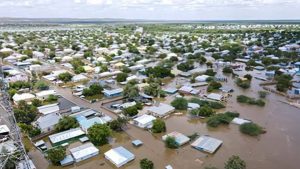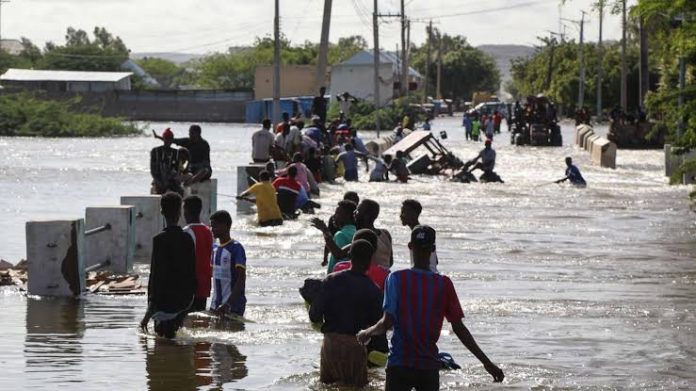Facebook Twitter (X) Instagram Somali Magazine - People's Magazine
Beledweyne, a key town in Somalia’s Hiiraan region, is facing devastating flooding after waters from the Shabelle River inundated surrounding areas over the past two days. The floodwaters have displaced scores of residents and destroyed vast tracts of farmland, intensifying fears of an escalating humanitarian crisis in the Hiiraan and Middle Shabelle regions.
Villages Submerged and Farmlands Lost
The villages of Deefow, Qooqane, and Lafoole have been particularly hard-hit, with homes and agricultural fields completely submerged. Mohamed Abdullahi, a farmer in Qooqane, described the destruction: “The people were displaced by the floods and fled to the mountains. The floodwaters completely washed away my farm and others. There are no fields left.”
The flooding has wiped out crops ready for harvest, threatening food security and the livelihoods of local communities dependent on agriculture.
A Recurring Crisis Worsened by Climate Change

Beledweyne’s flooding is part of a recurring pattern exacerbated by climate change and insufficient infrastructure to manage the Shabelle River’s waters. Annual floods displace thousands and disrupt lives, particularly in regions where agriculture is the backbone of the economy.
Calls for Long-Term Solutions
Humanitarian organizations and local authorities have issued urgent calls for sustainable measures to mitigate the impact of future floods. Proposed solutions include:
Strengthening Riverbanks: Reinforcing the Shabelle River’s embankments to prevent overflow.
Disaster Preparedness: Establishing robust disaster management systems to improve response times and coordination.
Sustainable Agriculture: Promoting farming practices resilient to flooding and climate-related challenges.
Urgent Need for Support
The ongoing crisis highlights the urgent need for international assistance to address immediate humanitarian needs and invest in long-term solutions for flood management. Without decisive action, recurring floods will continue to displace communities, destroy livelihoods, and hinder regional development.

